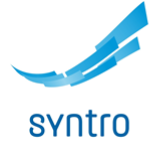Towards healthier individual shift work schedules
TNO, Holland Casino and Syntro (outsourcing partner) have focused on developing a personalized intervention that supports shift workers making healthy choices for self-rostering, to enable them to remain healthy and productive at work, now and in the future.
In the Netherlands, the number of shift workers has increased steadily in recent years. More than 4 out of 10 workers work at irregular hours (CBS, 2019). Shift work undermines the sustainable employability of employees, due to the disruption of biological and social rhythms (Gezondheidsraad, 2017). One of the key factors to reduce the negative effects of shift work is to design healthy and social rosters using ergonomic recommendations. However, these recommendations are mainly based on research on collective rosters, where everyone has the same schedule. Tolerance of specific working hours and social considerations differ from person to person (i.e. chronotype; having children). Self-rostering offers the opportunity to meet these personal differences and needs. Research into self-rostering mainly shows an improved work-life balance and higher job satisfaction; the effects on health are still unclear.
TNO, Holland Casino and Syntro, have focused on developing an intervention which facilitates shift workers to make balanced choices for self-rostering, taking social as well as health aspects into account. As a first step, this project aimed to gain insight into the scheduling choices shift workers make, how healthy these choices are and which socio-demographic, biological, socio-psychological and employment conditions factors influence the scheduling choices of employees. The findings of the first step have been reported in a scientific publication and a report.
In further steps, this knowledge can be incorporated into a prototype personalized intervention, followed by testing the effectiveness of the prototype on various factors related to sustainable employability. In case of proven effectiveness, the intervention can be developed into a widely applicable advanced self-roster tool.



